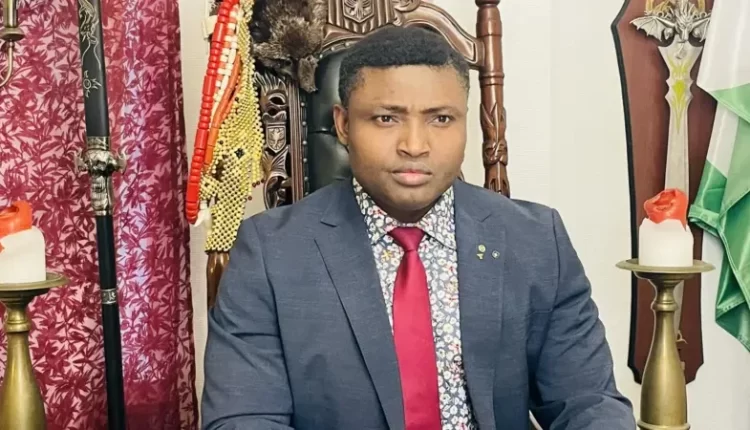Simon Ekpa Governs Biafra from Finnish Detention, Introduces Self-Defense Bills
Biafran separatist leader Simon Ekpa has remained a powerful force in the push for Biafra’s independence despite being held in detention in Finland.
On Tuesday, Ekpa announced two new legislative measures aimed at addressing insecurity in the South-East region of Nigeria, signaling his continued influence over the self-proclaimed United States of Biafra (USB).
The introduction of the bills follows recent violence in the region, particularly the tragic massacre in Nkalaha community, where over 20 civilians were killed. Ekpa’s proposed legislation—the Right to Bear Arms and Self-Defense Act 27/2025 and the Arms Manufacturing Bill Act 28/2025—aims to empower Biafrans to defend themselves against rising insecurity, both from state forces and non-state actors.
Ekpa’s arrest in Finland, linked to accusations of inciting violence in Nigeria, has not deterred his activities.
Through virtual cabinet sessions, he continues to lead USB’s legislative efforts, demonstrating the growing role of digital tools in modern separatist movements.
A statement released by Dr. Ngozi Orabueze, Deputy Prime Minister and Chief of Staff of USB, emphasized the urgent need for the bills in light of escalating violence in Biafran territories.
“Self-defense is necessary to the security of liberty and a free state. The right of the people to keep and bear arms for the purpose of defending themselves and the state shall not be infringed,” the statement read.
The Arms Manufacturing Bill seeks to establish local arms production to ensure Biafra’s self-reliance in defense. “The United States of Biafra, as a state, is tasked with obtaining the means to locally manufacture weapons of a defensive nature to be used to defend the State and people,” Dr. Orabueze noted.
Ekpa’s legislative push comes in response to alarming reports of violence in the region.
According to the International Society for Civil Liberties and Rule of Law (Intersociety), at least 180 people were killed in the South-East between December 2024 and January 2025.
The killings were attributed to a combination of security forces and non-state actors operating in the region.
Despite these reports, Nigerian security agencies have remained silent, offering no official comment or investigation into the violence. This silence has further fueled separatist sentiments, with many Biafrans feeling abandoned by the state.

Simon Ekpa’s ability to lead from detention raises complex questions about the nature of leadership in modern separatist movements. His supporters view him as a resilient leader fighting for the protection and rights of Biafrans. His continued influence, even while detained abroad, has solidified his role as the face of the movement.
However, critics argue that his rhetoric and legislative actions risk escalating violence in an already volatile region. Human rights organizations have accused Ekpa of using inflammatory language that incites unrest, while political analysts suggest that his push for armed resistance could lead to greater instability in the South-East.
There are also growing calls from various quarters for Finland to repatriate Ekpa to Nigeria, where he faces allegations related to the violence and unrest linked to his activities.
Ekpa’s latest legislative efforts highlight the continued tension between the Nigerian state and the Biafran separatist movement. With rising violence and the central government’s muted response, the region faces a critical juncture.
The introduction of these bills may embolden Biafran supporters to take up arms in self-defense, but it also raises fears of an escalation in violence. As Ekpa continues to govern from abroad, the future of the Biafran movement remains uncertain. What is clear, however, is that the struggle for Biafra’s independence is far from over—and its leaders, even in detention, remain committed to their cause.

